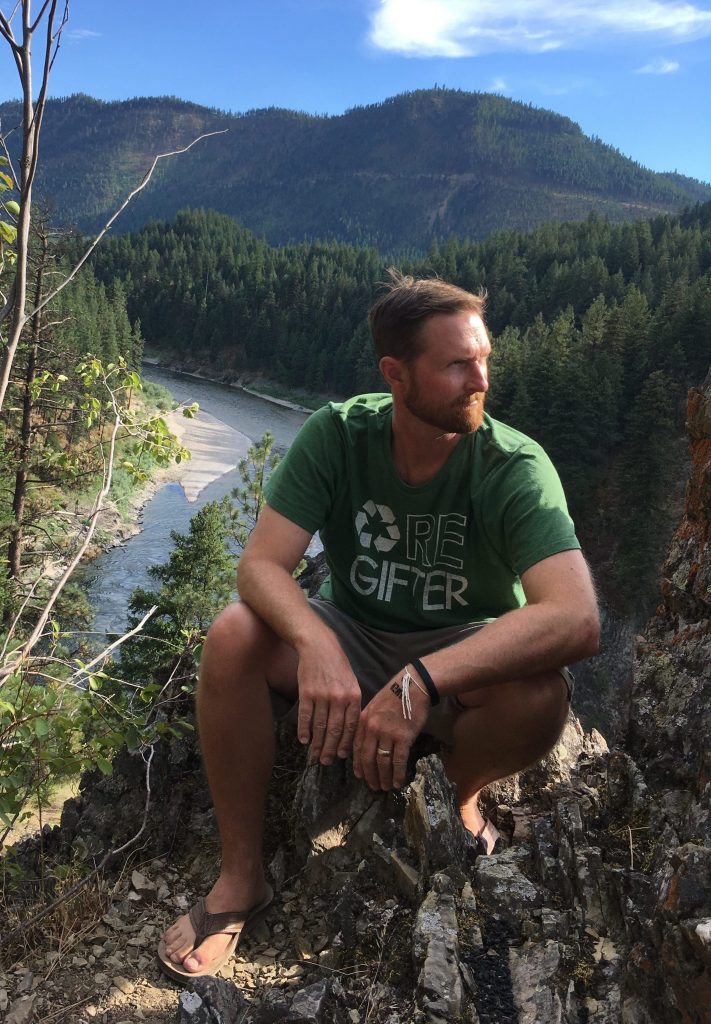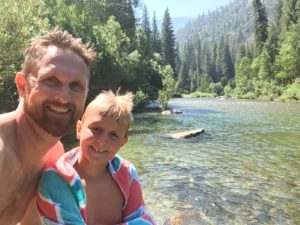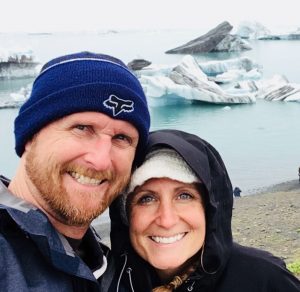 You might be genuinely surprised to hear someone call their neuroendocrine cancer “a blessing in disguise.” But that is how David Van Bibber sees it. Since his 2010 diagnosis at the age of 32, David’s priorities and perspectives have changed. As a result, he has invested more deeply in his health, his family, and his community. Now he is reaping the rewards of that investment and finding daily joy in his life.
You might be genuinely surprised to hear someone call their neuroendocrine cancer “a blessing in disguise.” But that is how David Van Bibber sees it. Since his 2010 diagnosis at the age of 32, David’s priorities and perspectives have changed. As a result, he has invested more deeply in his health, his family, and his community. Now he is reaping the rewards of that investment and finding daily joy in his life.
“I was in the motion of life and I think cancer has allowed me to be so much more intentional,” said David, “I’m tackling life; I am making the most of it.”
How can someone with cancer be so joyful?
David’s medical history is like many people with NETs: surgeries, ablations, chemotherapy, and rounds of PRRT abroad. He has good days and bad days. But he always focuses on making the most of every day God has given him.
In 2011, David reached a turning point. “I realized this is going to be a marathon and if I am going to persevere through it, I am going to need to have joy through it.”
David has learned to focus his thoughts, energy, and actions on living for what matters most. It is a holistic approach involving his soul, mind, and body.
The power of knowledge
Intellectually, David has a great thirst for knowledge about neuroendocrine cancer. He attends patient education conferences and reads reliable web-based resources on advances in care. “You have to be your own patient navigator,” said David. “I have to be in charge of this cancer.”
David takes charge of his cancer by being at the center of the treatment planning process. He values and nurtures his relationship with his care team with the goal of achieving the best possible clinical outcomes. But he also bounces treatment planning decisions around with others.
The Help of Others
Early in his journey, he got involved with a local NET patient support group. Today he heads up the group. Spending time with others facing the disease has always helped him. “There is something about hearing from someone who is a step ahead or five steps ahead of me in their journey that is so helpful,” said David. His activity in the NET community has helped him identify trusted sources of information—whether it be other individuals with NETs or physician experts who he can talk to about the pros and cons of different treatment options.
“You have to plot your steps and cross-check it,” he says. “Don’t just go to one person. Keep reaching out until you feel really good about a decision—when all of your research and input are pointing in that direction.”
Serving and believing
Through the years, David has seen people face cancer in many ways. He believes patients do best when they are educated, involved, and empowered. In his leadership role with the local support group, he helps others work towards “owning” their illness. “When I can serve others, it spurs them on, but I am also finding reward and fulfillment, giving me purpose to persevere.”
David’s Christian faith has also helped him thrive. David finds support and fellowship in his church family. By attending worship services and meeting with church elders, he finds wisdom and inspiration to stay on the track he set for himself to stay positive and not go to a dark, deep place.
Health & Balance
 Over the last six months, David has worked with a health coach to identify and reduce stressors in his life. To improve his overall health, David tries to be as active as possible, stretching, walking, and getting outdoors. He took his son camping recently, “It was tiring and tough,” he said. “But I pushed through it and found it very rewarding.”
Over the last six months, David has worked with a health coach to identify and reduce stressors in his life. To improve his overall health, David tries to be as active as possible, stretching, walking, and getting outdoors. He took his son camping recently, “It was tiring and tough,” he said. “But I pushed through it and found it very rewarding.”
This one-on-one time with his son is one way David is an intentional father following his cancer diagnosis. He says in surprise and delight that he “never fathomed his kids loving and respecting him like they do in their teen years.”
It is one of many rewards he now realizes from working towards physical, spiritual, social, and psychological balance. “Live for what matters to you and what you value to keep surviving and thriving,” he says. “There is a better way to live through this cancer.”

